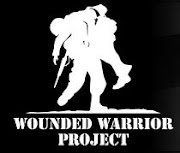 Separated from his platoon and nearly surrounded by eight al Qaeda fighters, Sergeant Benjamin Marshall had a decision to make: run for cover, stranding his two pinned comrades; or sprint across enemy fire and assume a position to shoot back. Marshall chose the latter, in what he would later call the defining moment of his life.
Separated from his platoon and nearly surrounded by eight al Qaeda fighters, Sergeant Benjamin Marshall had a decision to make: run for cover, stranding his two pinned comrades; or sprint across enemy fire and assume a position to shoot back. Marshall chose the latter, in what he would later call the defining moment of his life.July 7, 2006, during a mission in Tharthar, Iraq, Marshall, two fellow soldiers and an Iraqi interpreter entered a farmhouse – one of several they had been searching all day after receiving intelligence on a possible al Qaeda training camp in the area. After Marshall and one of his comrades, Staff Sergeant Christopher Schroeder, cleared the first room, an unknown man darted into another room, pointed his rifle out the doorway and blindly sprayed 7.62 rounds at the soldiers from his AK-47. Schroeder was hit twice. The two men on point, the wounded Schroeder and Sergeant Williams Wills, quickly sought cover in an adjacent room as a tremendous wall of automatic weapons fire began coming down on all three soldiers.
The interpreter got out of the house but Marshall knew his soldiers could not get out unless he was able to take up a firing position outside. Looking back, he said "I don’t know how, but they never saw me." Marshall remembers he had to run right by the terrorists in an effort to get outside, only to find a position in a dilapidated chicken coop. The terrorists attempted to close in on Wills and Schroder’s position, but Marshall’s expertly aimed shots stopped them.
As the battle wore on, it became apparent to Marshall that these were well-trained and determined fighters. As the gunfire continued inside the house, Marshall could hear the fervent chanting of the al Qaeda fighters, but the fate of his men remained a mystery. After hearing a volley of grenades near his soldiers’ last location, Marshall feared the worst. When he heard the thunderous clap of a flash bang grenade exploding near the insurgents’ position, only then did he breathe a sigh of relief.
As the platoon leader’s Humvee approached, Marshall shouted out the status of his injured brothers-in-arms to the vehicle’s gunner. His communication was critical, but it alerted the insurgents and drew fire onto his position. Round after round of machine gun fire ripped apart his thin cover, nearly taking his life. Yet becoming the insurgent’s target was exactly the diversion Marshall had hoped for to take the pressure off his fellow soldiers. This maneuver enabled the injured soldiers to signal to the four U.S. gun trucks. A Humvee, now at Marshall’s position, provided him with cover to then pull up alongside the building to evacuate the other two American soldiers.
Not a day goes by when Marshall does not think of that life-changing experience in Tharthar. In a split second he made the decision to save the lives of his fellow soldiers rather than run for cover. He picked "the hard right over the easy left," and because of that was awarded the Bronze Star with "V" device for exceptionally meritorious heroism in July of 2007.






No comments:
Post a Comment